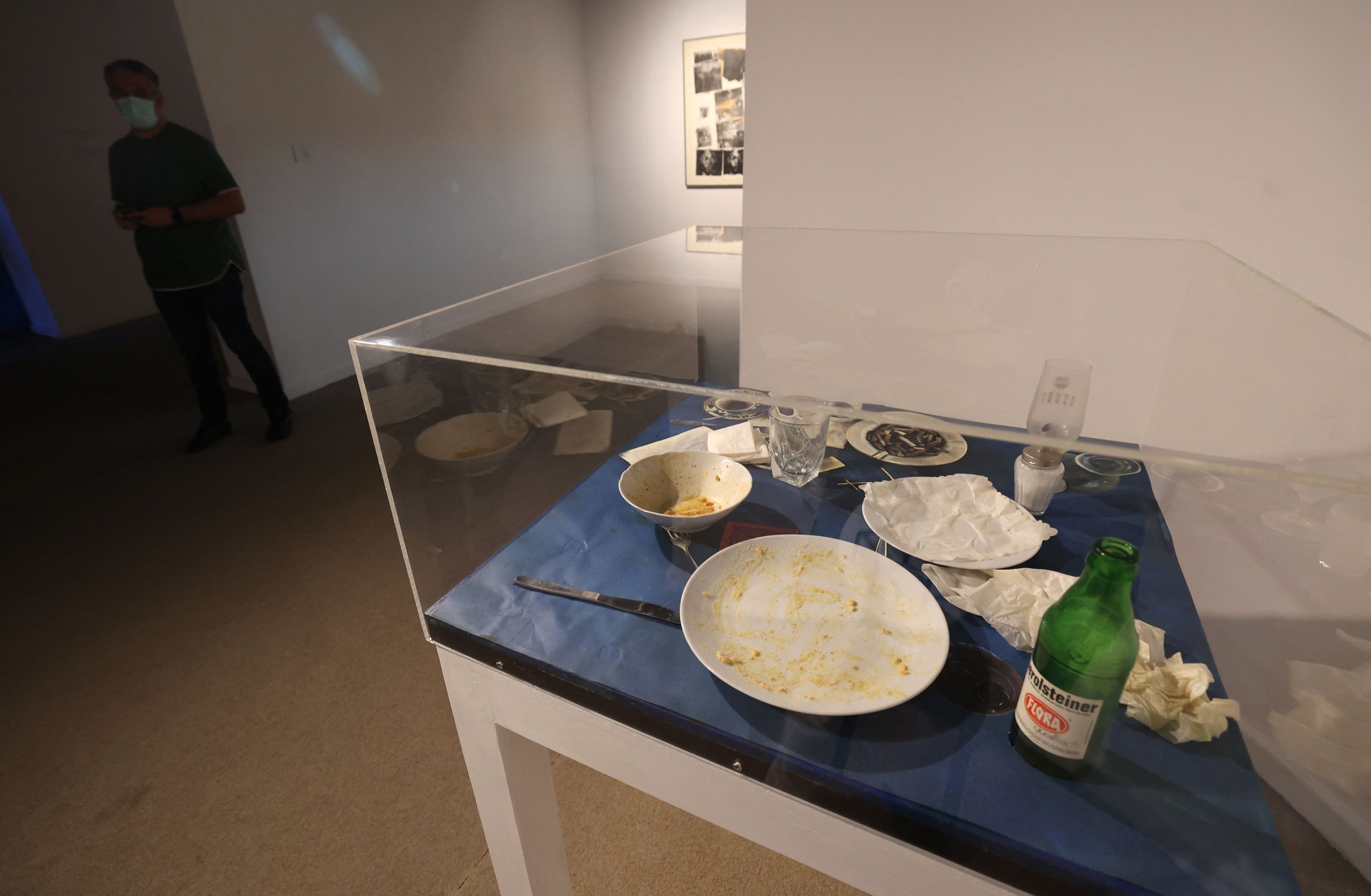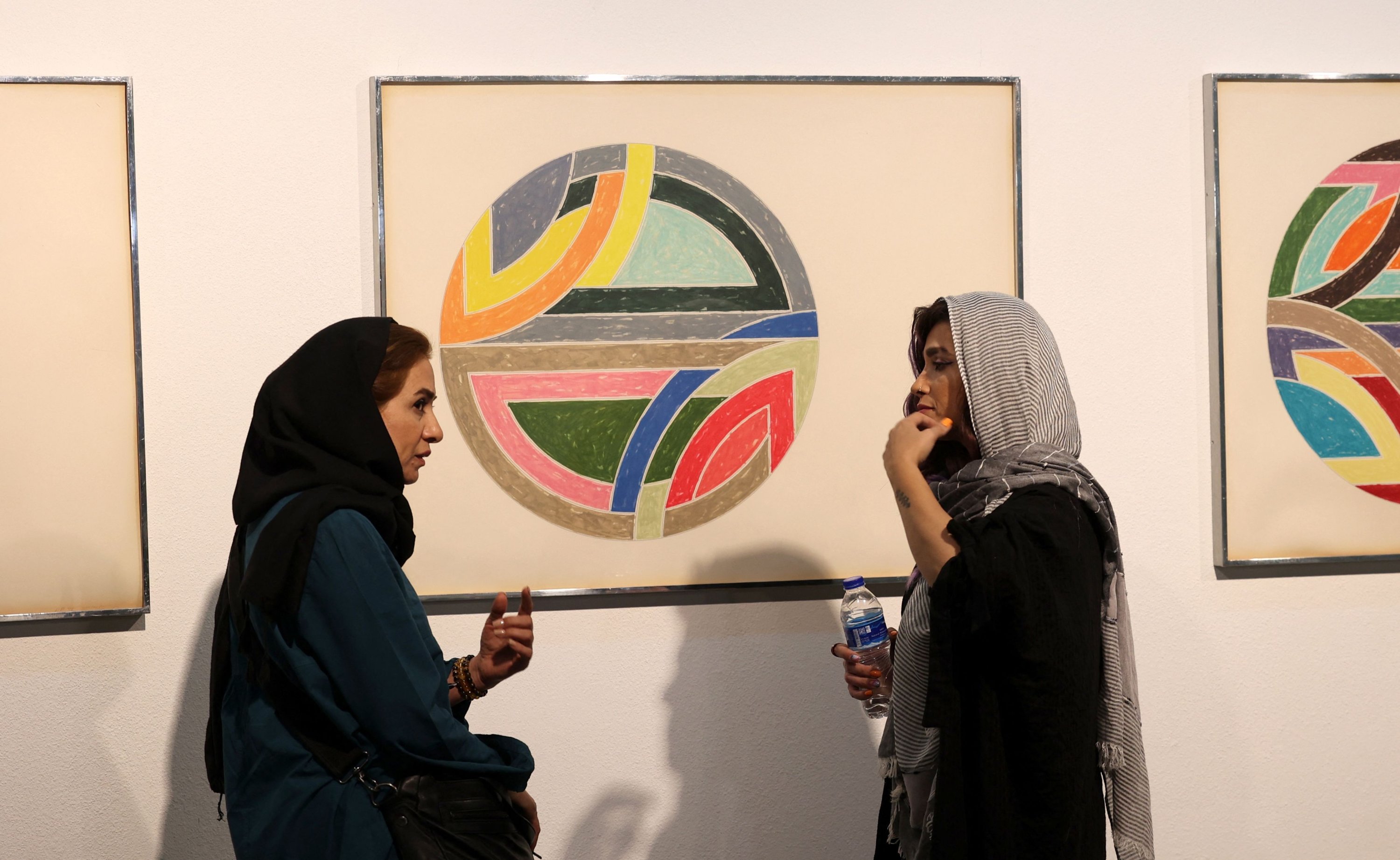© Turkuvaz Haberleşme ve Yayıncılık 2024
Thousands of visitors thronged an Iranian museum that has Western art masterpieces on display in its latest show, which are a part of a treasure trove collected before the Islamic Revolution.
The museum's collection is reputed to be the greatest line-up of modern masterpieces outside Europe and the United States and includes multimillion-dollar pieces, many of which have been kept under wraps since the 1979 revolution.
The Tehran Museum of Contemporary Art "surprises me every time," said visitor Shahin Rajabi, 35. "The current show is no exception."
The current "Minimalism and Conceptual Art" exhibition features 132 works by 34 world-famous contemporary artists, museum director Ebadreza Eslami said, including Marcel Duchamp, Sol LeWitt, Donald Judd and the duo Christo and Jeanne-Claude.
"The reception has been marvelous," Eslami said, particularly after long closures in recent years due to the COVID-19 pandemic.
He said one of the main factors for the footfall of this exhibit was that "38 masterpieces" were being displayed "for the first time."
Agence France-Presse (AFP) saw visitors at the museum this week, some stopping to study details while others were busy taking photos as they made their way intently through the museum.
"I loved the last room of the exhibit in particular, where the artist had worked with the fluorescent light," said visitor Rajabi, referring to American artist Dan Flavin's "Untitled" work.
The museum was inaugurated in 1977 during the reign of Shah Mohammad Reza Pahlavi, who was deposed by Islamic revolutionaries two years later.
Its design was inspired by Iran's desert wind towers - an architectural element used to catch and circulate cool air in hot environments.
Most of the collection was built up by the shah's wife, former queen Farah Pahlavi, who deployed a team of experts to tour Western auctions and snap up prestigious paintings and sculptures to boost the country's cultural profile.
The museum also holds an important collection of Iranian modern and contemporary art.
But the international works went underground after the Islamic republic's founder Ruhollah Khomeini railed against "Westoxification," deploring Western moral and sexual depravity, which he said had infected the Islamic world.
The themes of many of the Western works have been considered too risque to be publicly shown and have spent much of the past decades languishing in storage.
The museum counts some 3,500 works, hundreds of which are "very valuable," head of public relations Hassan Noferesti said.
They include masterpieces by Western artists from Paul Gauguin to Pablo Picasso, Rene Magritte, Jackson Pollock, Andy Warhol and Alberto Giacometti, according to Iran's culture ministry.
The current show, which runs until mid-September, includes a collage by Italian artist Michelangelo Pistoletto titled "Green Curtains" and an untitled work made from hemp by Canadian-American sculptor Jacqueline Winsor.
Curator Behrang Samadzadegan said "some 20,000 people" have visited since the show opened in late June – about twice the normal turnout.

Describing the theme of the show, he added, "when we are talking about minimalism, we are primarily talking about the environment, not the work."
Standing in front of the "Rock Salt & Mirror" by American artist Robert Smithson, 28-year-old painter Solmaz Daneshvar said she "greatly enjoyed" the display.
The exhibition, however, was at the center of controversy this month when an amateur video surfaced showing two silverfish insects underneath the frame of a rare image by the late German photographic duo of Bernd and Hilla Becher.
The video, whose authenticity could not be independently verified by AFP, went viral.

The museum later made a formal apology, assuring concerned art lovers that the work by the Bechers, who are known for their photos of industrial structures, was not damaged.
It also closed its doors for two days for fumigation.
In 2015, the museum held an exhibition of 42 works by Western artists, including Pollock's masterpiece "Mural on Indian Red Ground," valued by Christie's auction house experts in 2010 at $250 million.
